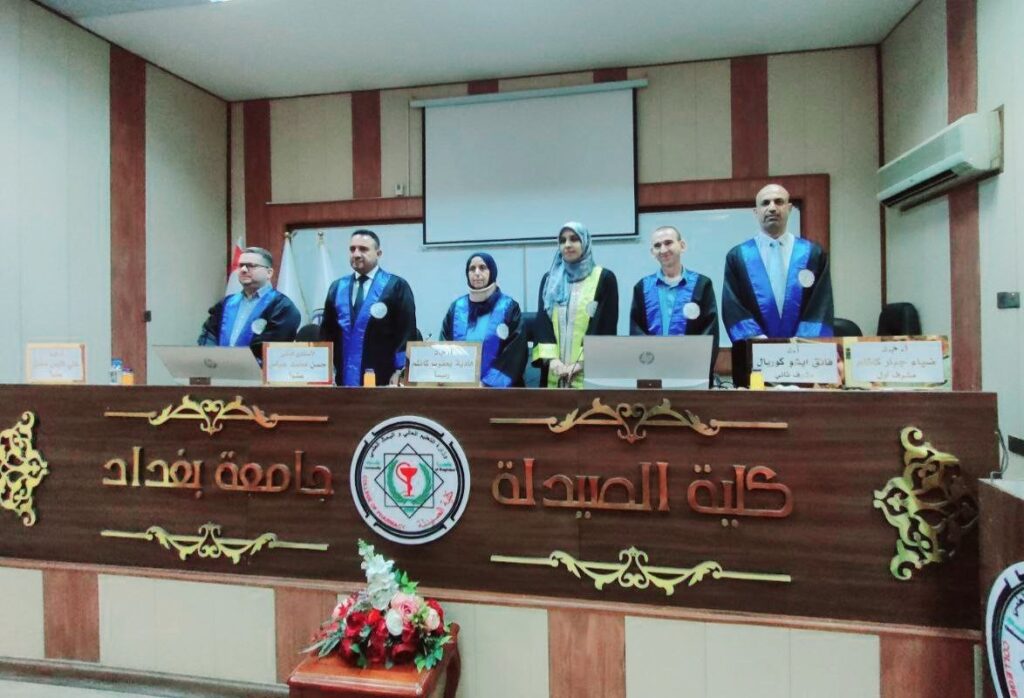The Faculty of Pharmacy discussed the master thesis tagged “Assessment of Belief about Medications and Medication Related Burden among a Sample of Iraqi Patients with Systemic Lupus Erythematosus and their Relation with Disease Activity” by Hawraa Kadhim Abbas in the Clinical Pharmacy Department . The aims of the study were to measure beliefs about medicine and MRB among a sample of Iraqi SLE patients and to explore any possible relationships between these two parameters and patient-related factors. The study was conducted on SLE patients who had already been diagnosed. The Arabic versions of the Belief about Medicines Questionnaire (BMQ) and the Living with Medicines Questionnaire (LMQ) were used to measure beliefs about medicine and MRB, respectively. In addition, SLE disease activity was evaluated using the SLE Disease Activity Index score with the Safety of Estrogens in Lupus Erythematosus National Assessment (SELENA-SLEDAI). The study recruited 156 SLE patients. The patients were (35.8 ±11.7) years old on average. The great majority of them were women (96.8 %). Concerning beliefs about medicines, the study showed that there was a positive belief about the necessity of medication where the (specific necessity score) had recorded a higher mean score (19.59 ± 3.33) than the specific concern score (18.60 ± 3.70) and the majority of the patients (49.4%) had a specific-necessity score greater than specific-concern score. The specific concern score had a significant positive correlation with the SELENA-SLEDAI Value. The average LMQ score was (117.30± 18.37) with most patients (69.87%) having moderate MRB. The disease activity score had significant (P-value <0.05) positive correlations with six LMQ domains: practical difficulties, cost, side effects of medications, effectiveness of prescribed medications, medication use concerns, and the effect of medication use on everyday life. Additionally, as compared to patients with low income, patients with higher income had significantly lower MRB. The study concluded that the majority of Iraqi SLE patients had strong beliefs in the necessity of their SLE treatment, while holding a negative belief about the prescribed medication was associated with increased SLE disease activity. A high proportion of the SLE patients experienced MRB. Additionally, six domains of the LMQ were correlated positively with SLE disease activity.



